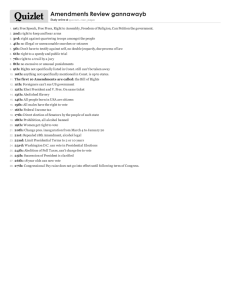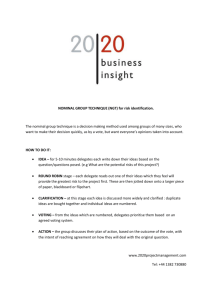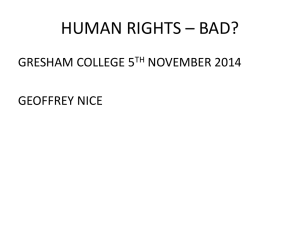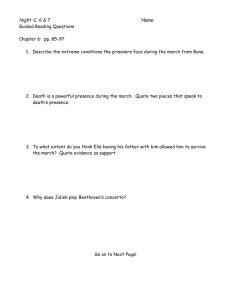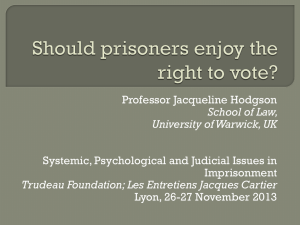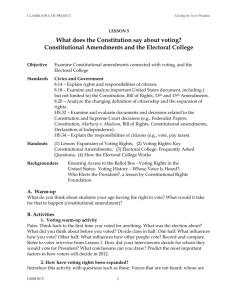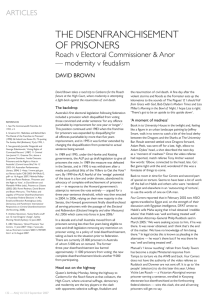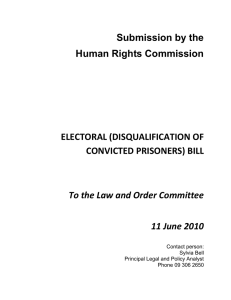PDF 32k - High Court of Australia
advertisement
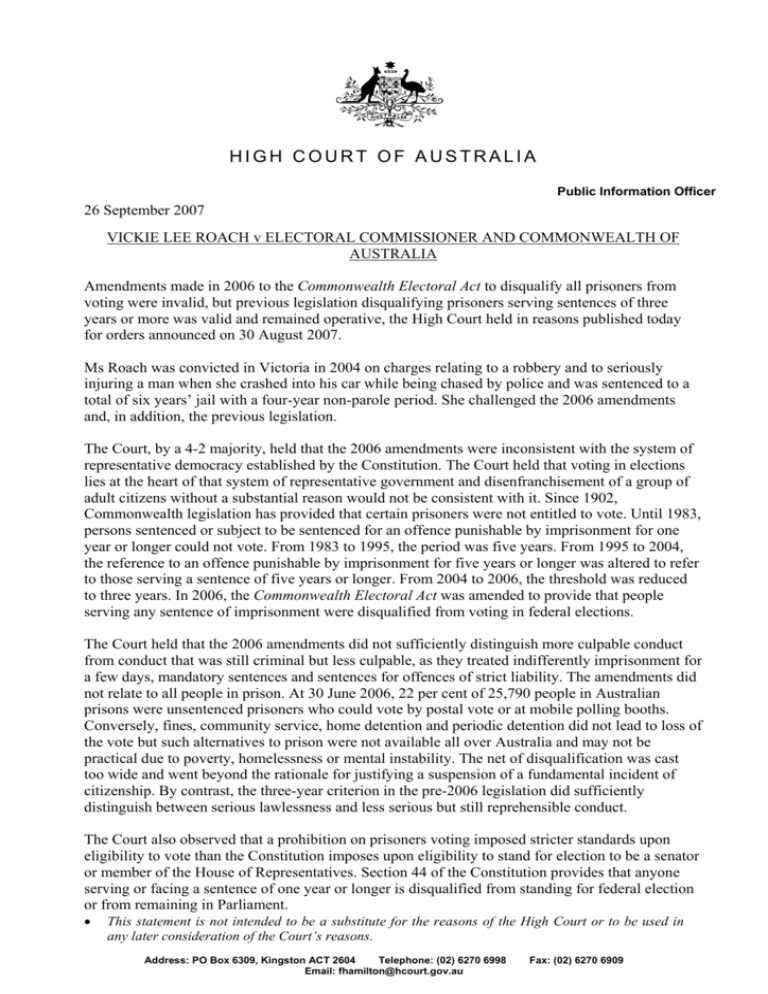
HIGH COURT OF AUSTRALIA Public Information Officer 26 September 2007 VICKIE LEE ROACH v ELECTORAL COMMISSIONER AND COMMONWEALTH OF AUSTRALIA Amendments made in 2006 to the Commonwealth Electoral Act to disqualify all prisoners from voting were invalid, but previous legislation disqualifying prisoners serving sentences of three years or more was valid and remained operative, the High Court held in reasons published today for orders announced on 30 August 2007. Ms Roach was convicted in Victoria in 2004 on charges relating to a robbery and to seriously injuring a man when she crashed into his car while being chased by police and was sentenced to a total of six years’ jail with a four-year non-parole period. She challenged the 2006 amendments and, in addition, the previous legislation. The Court, by a 4-2 majority, held that the 2006 amendments were inconsistent with the system of representative democracy established by the Constitution. The Court held that voting in elections lies at the heart of that system of representative government and disenfranchisement of a group of adult citizens without a substantial reason would not be consistent with it. Since 1902, Commonwealth legislation has provided that certain prisoners were not entitled to vote. Until 1983, persons sentenced or subject to be sentenced for an offence punishable by imprisonment for one year or longer could not vote. From 1983 to 1995, the period was five years. From 1995 to 2004, the reference to an offence punishable by imprisonment for five years or longer was altered to refer to those serving a sentence of five years or longer. From 2004 to 2006, the threshold was reduced to three years. In 2006, the Commonwealth Electoral Act was amended to provide that people serving any sentence of imprisonment were disqualified from voting in federal elections. The Court held that the 2006 amendments did not sufficiently distinguish more culpable conduct from conduct that was still criminal but less culpable, as they treated indifferently imprisonment for a few days, mandatory sentences and sentences for offences of strict liability. The amendments did not relate to all people in prison. At 30 June 2006, 22 per cent of 25,790 people in Australian prisons were unsentenced prisoners who could vote by postal vote or at mobile polling booths. Conversely, fines, community service, home detention and periodic detention did not lead to loss of the vote but such alternatives to prison were not available all over Australia and may not be practical due to poverty, homelessness or mental instability. The net of disqualification was cast too wide and went beyond the rationale for justifying a suspension of a fundamental incident of citizenship. By contrast, the three-year criterion in the pre-2006 legislation did sufficiently distinguish between serious lawlessness and less serious but still reprehensible conduct. The Court also observed that a prohibition on prisoners voting imposed stricter standards upon eligibility to vote than the Constitution imposes upon eligibility to stand for election to be a senator or member of the House of Representatives. Section 44 of the Constitution provides that anyone serving or facing a sentence of one year or longer is disqualified from standing for federal election or from remaining in Parliament. • This statement is not intended to be a substitute for the reasons of the High Court or to be used in any later consideration of the Court’s reasons. Address: PO Box 6309, Kingston ACT 2604 Telephone: (02) 6270 6998 Email: fhamilton@hcourt.gov.au Fax: (02) 6270 6909
